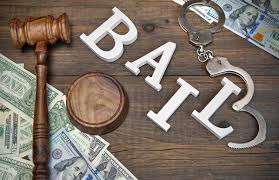Details on Bail Bonds
Bail bond is a contract based upon law between a crime suspect and the jurisdiction that gives a surety about the court appearances of the suspect. It is an agreement between four different entities: a person charged as guilty, the court, The bond agent, and the bail bonding company. The job of a bail agent is to be responsible for whether your court appearances in time. The option to pay the bond himself is reserved by a suspect if he can afford it. The court sets the bail amount and the severity of crime decides the cost. In case of the escape of a suspect, he surely is brought back to justice and in that case, he loses all the right to obtain back the bond money.Do you want to learn more? Visit about the topic
 The purpose of a bail bond company is to ensure the court about your court appearance when scaled upon by the judge that is your next court date. As a condition of your release, it is necessary to check in regularly with your bail agent. As a monetary incentive, money is needed by the court in the form of a bond to release a suspect. By doing this the defendant is prevented from fleeing the jurisdiction, or the country. A sum or fee is charged by the bail bonding company against posting for your bail and this sum changes as respects the change in the jurisdiction.
The purpose of a bail bond company is to ensure the court about your court appearance when scaled upon by the judge that is your next court date. As a condition of your release, it is necessary to check in regularly with your bail agent. As a monetary incentive, money is needed by the court in the form of a bond to release a suspect. By doing this the defendant is prevented from fleeing the jurisdiction, or the country. A sum or fee is charged by the bail bonding company against posting for your bail and this sum changes as respects the change in the jurisdiction.
In most cases, ten percent of the entire bond cost is reserved for the bond cost in a crime. That implies that you are required to pay to the bail bonding company only $1,000 if the amount of your bail comes out to be $10,000. As most people could not afford this, it saves them from paying the whole amount themselves. A significant point to keep in mind is that once a suspect pays the cut-down amount, the bonding company does not give it back to him. It is equivalent to fee paying. For a lower crime arrest, the bonding company charges 20% fee.
There is one more important point to consider regarding cost i.e. in most of the states the law sets up cost of a bond. The bail bond costs as well as the breakdown costs are already defined for that state. Consumers are saved from the worry of different bond rates of different companies which might change it owed to the competition since these rates can not be negotiated. It can sound you to be something as a blessing in disguise.
It all matters; the cost of a bail bond is directly proportional to crime severity. In most practical instances of states, a “bail schedule” is present, which specifies a bail amount or money decided by the nature of criminal offense. Taking the example of Los Angeles, California, the amount of bail against the sexual assault costs $25,000, cost of $100,000 rests with the murder and kidnapping someone with the intent to rape costs huge amount up to $1,000,000. So a bail is not less costly thing. It is not mandatory to the Judges to abide by a bail schedule, however, an individual’s bail amount may be increased or decreased on the discretion of a judge, or if it is a crime of less severe nature, a judge may relinquish the bail and let the suspect enjoy freedom.



